
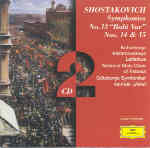
Neeme Järvi leads Babi Yar with his characteristic alacrity and intensity. The performance has a notable lightness of utterance and an overall sharp-edged quality that
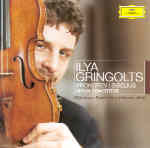
Ilya Gringolts is one sensational violinist. From a purely technical point of view, the playing on offer here is nothing short of astounding. The performance
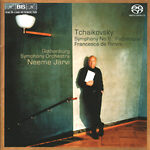
Neeme Järvi’s take on Tchaikovsky’s Sixth is stylistically consistent with his other recordings of the composer’s music (namely the orchestral suites and tone poems on

Nikolai Miaskovsky’s Sixth is the most frequently performed of his 27 symphonies, although its familiarity among Western audiences remains relatively slight. A big, post-romantic work,

What a surprising disc this is! Péter Eötvös’ zeroPoints (yes, the spelling is correct) is another one of those puzzlingly-titled textural things that contemporary composers
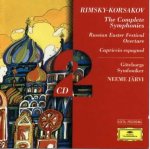
Neeme Järvi is one of the few conductors to make sense of Rimsky-Korsakov’s Op. 9 “Antar” Symphony, a powerfully dramatic work that in the right

Neeme Järvi’s survey of Grieg’s orchestral works always has been highly regarded, combining idiomatic interpretations and vibrant sound from Gothenburg’s splendid orchestra and acoustically inviting

Neeme Järvi already has recorded the First symphony by Maximillian Steinberg (1883-1946, son-in-law of Rimsky-Korsakov) with the Gothenburg Symphony for DG. These same forces follow
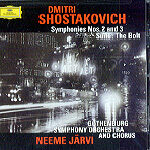
Neeme Järvi has given thought-provoking accounts of Shostakovich’s symphonies Nos. 11, 12, and 13 with the Gothenburg Symphony. He now turns to Symphony No. 2

Neeme Järvi’s re-recording of this repertoire with the Gothenburg Symphony for Deutsche Grammophon does not improve upon his earlier versions on BIS. In fact, his
![]()
